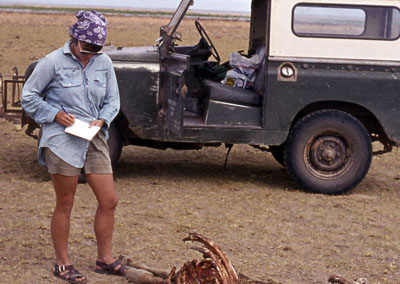Campus News
Diane Gifford-Gonzalez wins social sciences award for outstanding research
Anthropology professor Diane Gifford-Gonzalez is the 2014 recipient of the Martin M. Chemers Award for Outstanding Research in the Social Sciences at UC Santa Cruz.

Anthropology professor Diane Gifford-Gonzalez is the 2014 recipient of the Martin M. Chemers Award for Outstanding Research in the Social Sciences at UC Santa Cruz.
Gifford-Gonzalez is one of the world’s leading practitioners of zooarchaeology, an archaeological science that analyzes animal remains to better understand human behavior. Zooarchaeology is “not just stuff you dig up,” Gifford-Gonzalez says. “It is how we imagine these past worlds to push the scientific envelope.”
As a pioneer in her field, Gifford-Gonzalez has developed methodological practices that have influenced ways archaeologists conduct research.
“My research recognizes the agency of animals and plants,” she said. “They make demands on humans too. Archaeology is as much a craft as it is a science and discipline. It is about imagination. It’s about really understanding that organism.
“It’s not the things,” she adds. “It’s the patterns in mass data that emerge. That’s what is exciting.”
Gifford-Gonzalez points out that most historical science is analogical, where the past is understood through a present perspective. By making anachronistic comparisons, research becomes unreliable. It is inferred, probable and out of context.
These arguments are the basis for “actualistic research,” a form of study that uses present-day analogs to better understand the past. She argues that comparative research needs to examine the agency, actors, affect, and behavior inside the ecological framework in which it is situated.
Gifford-Gonzalez, who joined UC Santa Cruz in 1976, is president-elect of the Society for American Archaeology. Her upcoming book on zooarchaeology is expected to be published in 2016.